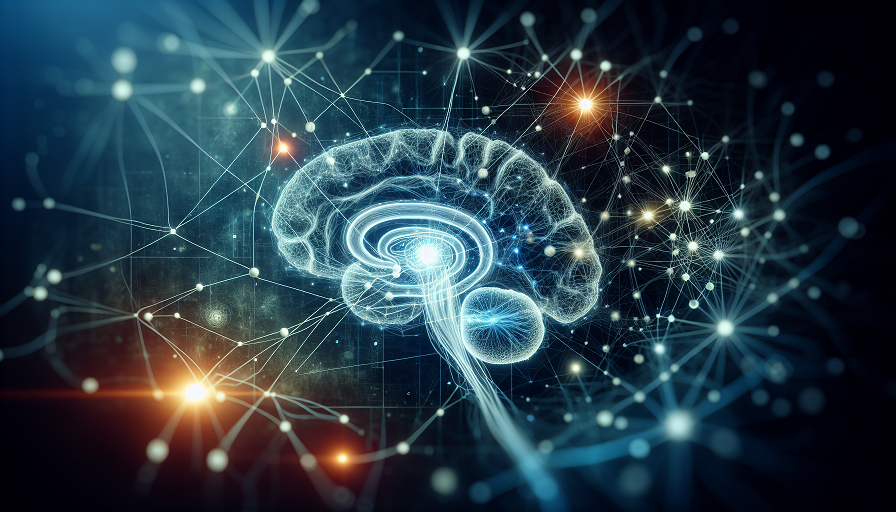
Think of your brain as a muscle—just like biceps or quads, it needs regular exercise to stay strong and flexible. One of the best ways to give your brain a workout is through puzzles. From crosswords and Sudoku to jigsaw puzzles and brain teasers, mastering different types of puzzles challenges your cognitive abilities and keeps your mind sharp.
Contents
How Puzzles Engage Your Brain
Puzzles aren’t just fun—they’re mental workouts that activate multiple areas of your brain. Each type of puzzle targets specific cognitive skills, helping to improve memory, problem-solving, and attention.
Activating the Prefrontal Cortex
The prefrontal cortex, responsible for planning and decision-making, is engaged when solving puzzles. For example, figuring out a crossword clue requires you to analyze, recall, and connect information, strengthening this part of the brain.
Enhancing Neural Connections
Solving puzzles stimulates neuroplasticity by forming and reinforcing neural connections. This helps your brain adapt and respond to new challenges, improving overall cognitive function.
Improving Focus and Concentration
Puzzles demand sustained attention, training your brain to focus for longer periods. A jigsaw puzzle, for instance, requires you to carefully match shapes and colors, enhancing your ability to concentrate.
The Cognitive Benefits of Different Types of Puzzles
Each type of puzzle offers unique benefits, targeting different areas of cognitive function. By mastering a variety of puzzles, you can give your brain a well-rounded workout.
Crossword Puzzles: Boosting Vocabulary and Memory
Crossword puzzles are excellent for improving verbal skills and memory. They challenge you to recall definitions, synonyms, and cultural knowledge. For example, completing a crossword might help you remember a trivia fact for years.
Sudoku: Enhancing Logical Thinking
Sudoku exercises logical reasoning and pattern recognition. By filling in numbers based on logical constraints, you strengthen your problem-solving skills. Sudoku players often report improved clarity and quicker decision-making in other areas of life.
Jigsaw Puzzles: Sharpening Visual-Spatial Skills
Jigsaw puzzles improve spatial reasoning by requiring you to visualize how pieces fit together. This skill is invaluable for tasks like navigating directions or assembling furniture.
Brain teasers push you to think outside the box. Riddles and lateral thinking puzzles challenge conventional problem-solving, fostering creativity and adaptability.
How Puzzles Support Memory Retention
Memory is a key area where puzzles shine. They engage both short-term and long-term memory, helping to keep your recall abilities sharp.
Strengthening Short-Term Memory
Puzzles like memory-matching games require you to remember the location of cards or objects, improving your working memory. This translates to better recall in everyday tasks, such as remembering a shopping list.
Supporting Long-Term Memory
Crossword puzzles and trivia-based puzzles tap into your long-term memory by requiring you to retrieve stored knowledge. Regularly engaging in these activities can slow memory decline and keep your recall sharp.
Delaying Cognitive Decline
Research suggests that puzzles may help delay the onset of cognitive decline in aging populations. One study found that older adults who regularly solved puzzles performed better on memory tests than those who didn’t.
Puzzles and Stress Reduction
Beyond cognitive benefits, puzzles also have a calming effect on the mind. They encourage mindfulness and provide a mental break from stressors.
Entering a Flow State
Solving puzzles often induces a flow state—a focused, meditative state where time seems to disappear. This not only boosts productivity but also promotes relaxation and stress relief.
Providing a Sense of Accomplishment
Completing a puzzle gives you a tangible sense of achievement, boosting confidence and motivation. One jigsaw puzzle enthusiast shared how finishing a challenging 1,000-piece puzzle left them feeling accomplished and mentally refreshed.
Fostering Patience and Persistence
Puzzles teach you to embrace challenges and persist through difficulties. These lessons extend to real-life situations, helping you tackle problems with a calm and focused mindset.
How to Incorporate Puzzles into Your Routine
Making puzzles a regular part of your life doesn’t have to be time-consuming. With a little creativity, you can integrate them into your daily routine and reap the cognitive rewards.
Start Small
Begin with bite-sized puzzles, like daily crossword puzzles or a quick Sudoku game. These can be completed in 10-15 minutes and fit easily into your schedule.
Mix It Up
Variety is key to maximizing benefits. Rotate between different types of puzzles to engage multiple cognitive skills. For example, alternate between jigsaw puzzles, word searches, and logic puzzles.
Involve Others
Puzzles don’t have to be a solo activity. Team up with friends or family for collaborative puzzles, such as group jigsaw puzzles or trivia games. This adds a social element, further enhancing brain health.
Real-Life Stories of Brain Benefits from Puzzles
The benefits of puzzles aren’t just theoretical—real people have experienced profound cognitive and emotional improvements by incorporating puzzles into their lives.
The Writer Who Boosted Creativity
A writer struggling with creative blocks began solving lateral thinking puzzles during breaks. They found that the puzzles sparked new ideas and improved their ability to approach storytelling from unique angles.
The Senior Who Sharpened Memory
A retiree concerned about memory decline made crossword puzzles part of their daily routine. Over time, they noticed improved recall and greater confidence in social interactions, such as remembering names and events.
The Professional Who Improved Focus
A busy executive incorporated jigsaw puzzles into their evening wind-down routine. They reported better focus at work, attributing it to the calming yet stimulating effects of their nightly puzzle sessions.

